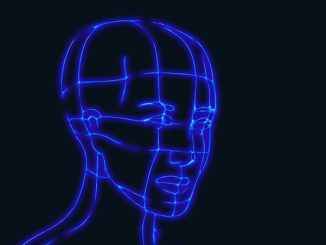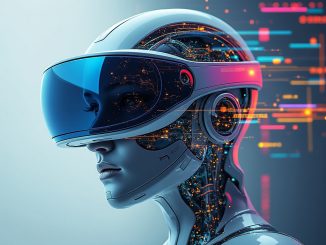Daphne Koller says although biology is 5-7 years behind language models, the explosion in biological data means that AI will soon be able to make causal inferences about disease pathways pic.twitter.com/kXwcUbRRxG
— Tsarathustra (@tsarnick) October 5, 2024
The intersection of artificial intelligence (AI) and biology is poised for a revolutionary breakthrough, according to Daphne Koller, a prominent figure in the field of machine learning and computational biology.
Koller suggests that while biology currently lags behind language models by five to seven years, the exponential growth in biological data collection is setting the stage for AI to make significant strides in understanding disease pathways.
Koller explains that exponential growth curves can be deceptive, appearing flat and uneventful for extended periods before suddenly accelerating at a breathtaking pace. This phenomenon is driven primarily by the availability of vast amounts of high-quality data for machine learning.
In the realm of biology, the quantity of relevant data has been relatively limited compared to other fields. However, Koller points out that we are now witnessing a “tidal wave of innovation” in generating biological data at an unprecedented scale.
One of the most exciting developments is the ability to reprogram skin cells into stem cells, which can then be differentiated into any cell type in the human body. This breakthrough allows researchers to create personalized cellular models, such as neurons, that carry an individual’s genetic makeup. These models can be further manipulated to introduce disease-causing mutations, enabling scientists to observe the effects of genetic alterations on cellular function.
Advancements in imaging technologies, such as super-resolution microscopy, now allow researchers to visualize individual proteins and molecules within cells. These tools, developed by life scientists and bioengineers, are generating enormous amounts of single-cell biological data that were previously unattainable.
The true power of this biological data revolution lies in its integration with artificial intelligence. While the sheer volume of data would overwhelm human researchers, AI systems can process and analyze this information at an unprecedented scale and speed. Koller believes that this synergy between AI and biology will enable scientists to make causal inferences about cellular processes and disease mechanisms.
By combining AI’s analytical capabilities with the wealth of biological data now available, researchers can begin to unravel complex relationships within cells. This approach allows for a more comprehensive understanding of how specific cellular perturbations lead to cascading effects and, ultimately, disease manifestation.
The convergence of AI and biology promises to usher in a new era of scientific discovery and medical advancements. As we continue to generate and analyze vast amounts of biological data, we may soon witness breakthrough insights into disease pathways and potential therapeutic interventions.
This exciting frontier of research holds the potential to revolutionize our understanding of human biology and transform the landscape of healthcare and medicine.
- Bulenox: Get 45% to 91% OFF ... Use Discount Code: UNO
- Risk Our Money Not Yours | Get 50% to 90% OFF ... Use Discount Code: MMBVBKSM
Disclaimer: This page contains affiliate links. If you choose to make a purchase after clicking a link, we may receive a commission at no additional cost to you. Thank you for your support!




Leave a Reply